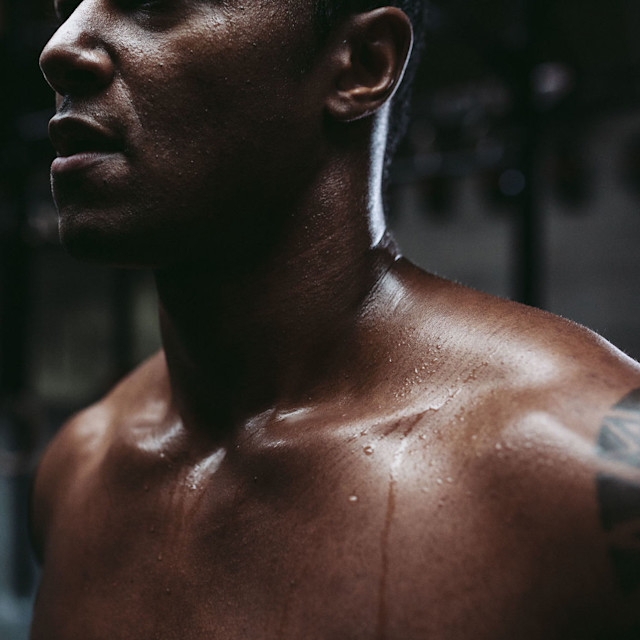Find out if it causes acne, weight loss, and more.
Even outside of intense routines—while you sleep, walk, or stand in the summer heat—you sweat. Perspiration is easily glorified as a sign of a challenging workout or vilified as a mark of weakness. In reality, it’s nothing more than your body’s way of cooling down your core temperature, says David Otey, personal training manager at Equinox Sports Club New York.
To set the record straight, Furthermore explored a few common myths about this natural bodily function, including its implications for fat loss and hangovers.
The myth: You have to sweat to have a good workout.
The verdict: False
“Sweat rate is affected by a ton of factors including genetics, external temperature, air flow, and rest between sets,” Otey explains. The quality of your workouts isn’t based on how much water you lose but the type of movements you’re doing and the intensity and volume at which you’re working, Otey says.
The myth: Sweating helps you lose weight.
The verdict: Indirectly
Sweat is triggered by a spike in core temperature, which does coincide with a revved metabolism. Still, perspiration itself isn’t a sign that you’ll lose weight. During exercise, your body is typically burning carbs rather than fat, which doesn’t help you drop pounds. Calorie burn from your workouts actually skyrockets in the hours after you stop sweating. “Most fat burn happens while you’re at rest overnight,” Otey says.
The myth: Sweating helps you bounce back after a night out.
The verdict: True—but not for the reason people think
Your body has the ability to rid itself of some toxins like BPA from water bottles, says Matt Berenc, Beverly Hills-based director of education at the Equinox Fitness Training Institute. Alcohol, however, is metabolized by the liver, so sweat has no effect on how you process it.
The reason you feel better post-workout isn’t because the wine or cocktails you drank the night before have seeped out of your pores. Instead, it’s because exercise triggers a rush of endorphins and circulates nutrient-rich blood to your muscles, hydrating your tissues. To get the benefits, move at a low or moderate intensity for 30 minutes the morning after a night out, Berenc says. Sitting in the sauna for up to 15 minutes could have similar effects on blood flow and endorphins.
The myth: Sweat causes acne.
The verdict: False
Acne develops when things like external oils (from your phone screen or fingers, for example), lotions (which block airflow), and abnormal cell growth clog your pores, explains Zakia Rahman, MD, clinical professor of dermatology at Stanford University in California. Sweat plays no role in the process.
That’s why it isn’t paramount to wash your face post-workout. Perspiration does open your pores, which makes them vulnerable to those acne perpetrators. But a splash of cold water is enough to close them up and keep your skin clear, Rahman says. Do the same to your groin and underarms, two areas where blocked sweat glands can lead to an uncomfortable condition called hidradenitis suppurativa (or prickly heat) characterized by itchy bumps.
The myth: People who sweat excessively are out of shape.
The verdict: Not always
Considering Olympic marathoner Alberto Salazar has one of the highest sweat rates on record, this is decidedly false. It's true that if you take a few weeks off due to injury or a busy travel schedule, you'll lose some fitness and start sweating earlier in your workouts and at lower intensities than you would normally, Berenc says. Still, sweat rate is highly individual and not linked directly to how in shape you are.
